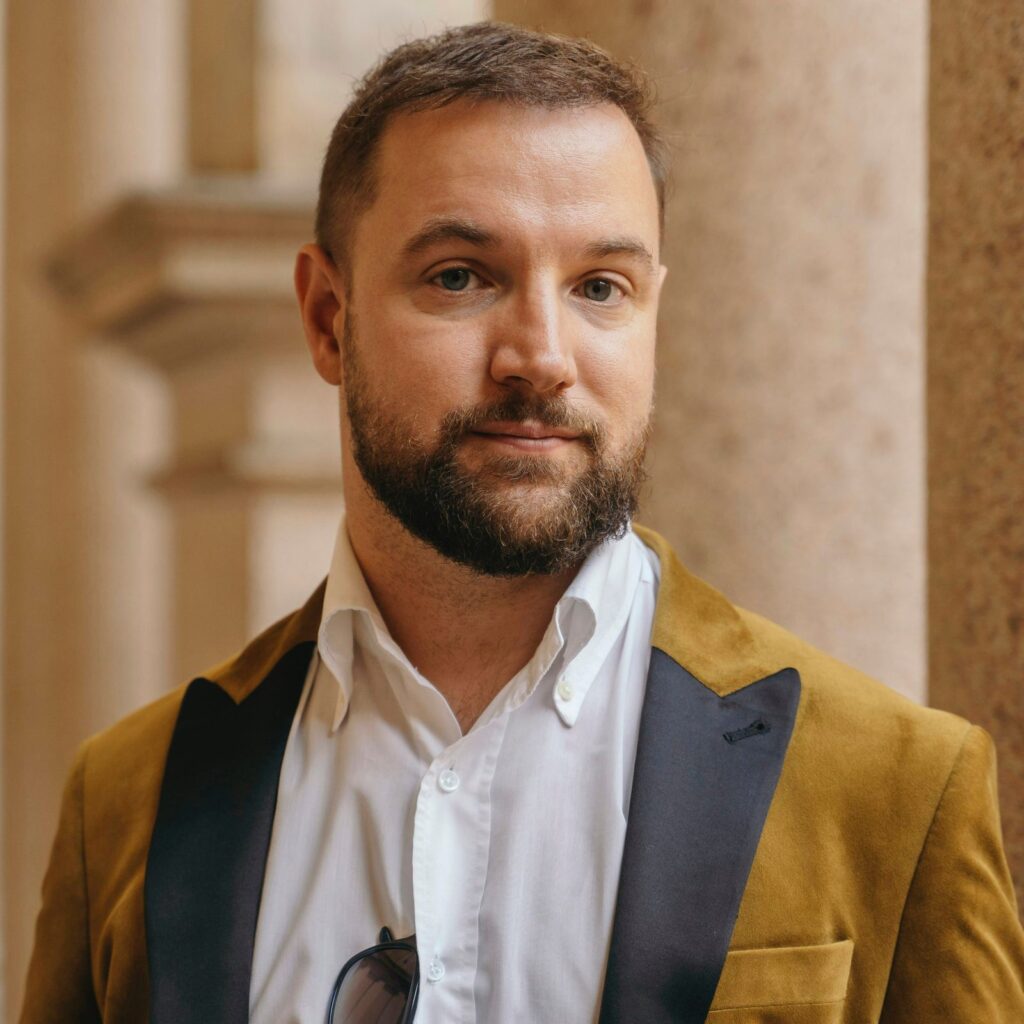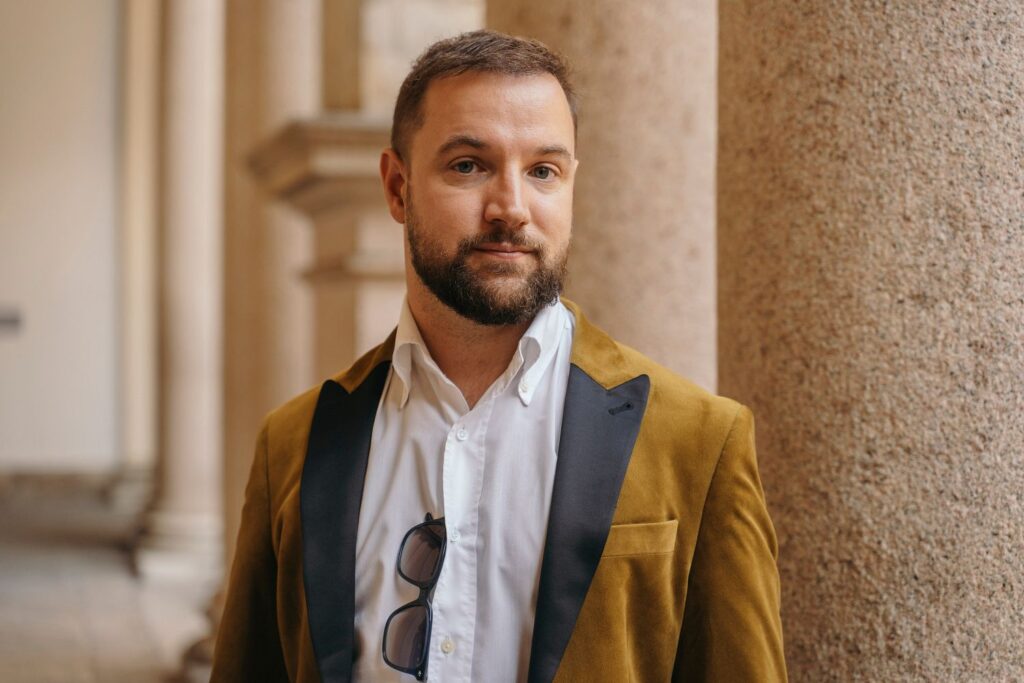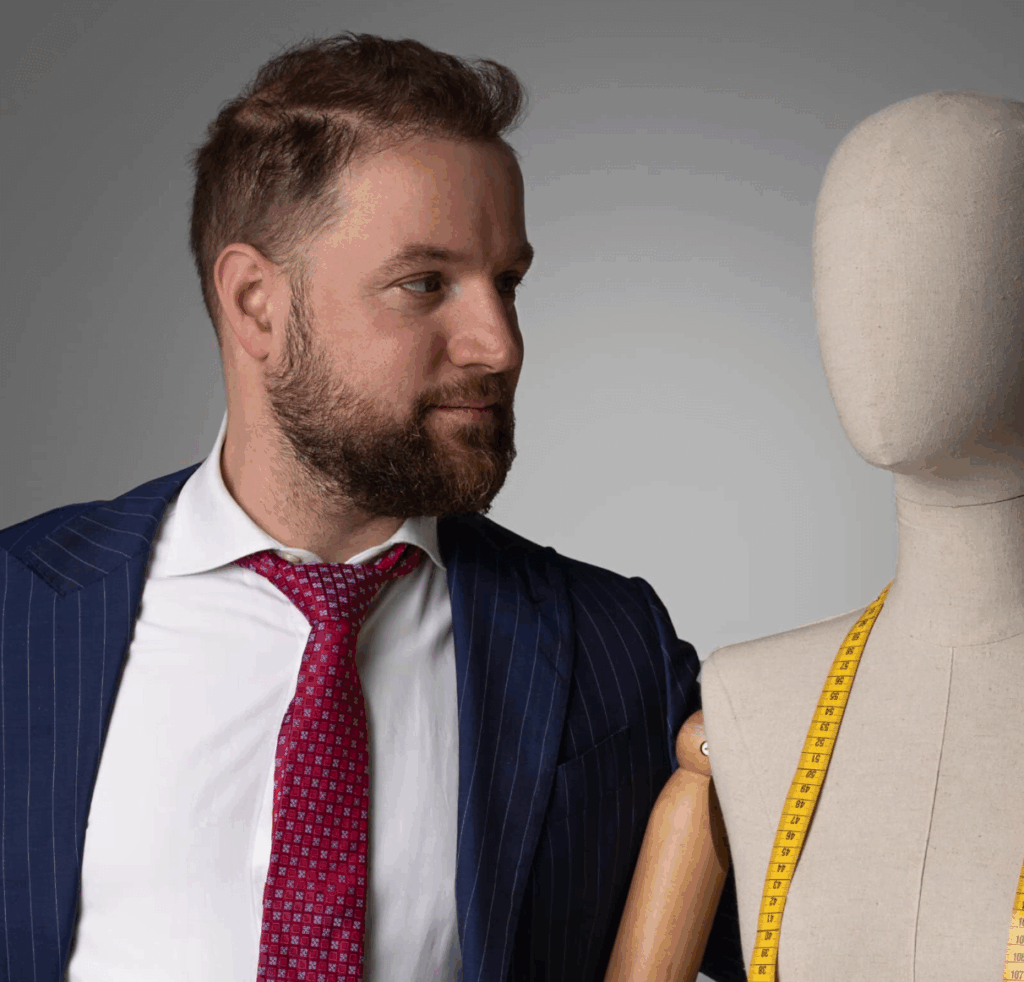Luxury brands once relied on name prestige and opulent displays to capture High Net Worth clients. Now, expectations have reached a new level. Over 70 percent of luxury buyers expect highly personalized interactions and 76 percent leave when these expectations are not met. Surprising, right? The real secret is that the most effective luxury marketing examples focus less on flash and more on insight. Emotional connection, storytelling, and customization shape desire far more than any logo or price tag could.
Table of Contents
- Understand Your Audience: Hnw Client Insights
- Crafting A Unique Value Proposition In Luxury
- Utilizing Storytelling For Brand Connection
- Leveraging Exclusive Partnerships For Visibility
- Creating Immersive Experiences: Events And Pop-Ups
- Implementing Digital Strategies In Luxury Marketing
- Personalization: Tailoring Approaches For Individual Clients
- Measuring Success: Kpis For Luxury Marketing
Quick Summary
| Takeaway | Explanation |
|---|---|
| Understand HNW client needs deeply | Tailor strategies to the unique preferences and emotional expectations of High Net Worth clients to enhance engagement. |
| Craft a compelling unique value proposition | Communicate a transformative emotional journey through authentic storytelling rather than focusing solely on product features. |
| Leverage immersive experiences | Create memorable brand encounters that engage multiple senses and reflect the brand’s heritage and philosophy. |
| Implement hyper-personalized marketing strategies | Use advanced analytics and personalized engagement to anticipate unexpressed desires and deepen client connections. |
| Measure success with nuanced KPIs | Employ advanced performance indicators that capture emotional engagement and brand loyalty rather than just sales metrics. |
1: Understand Your Audience: HNW Client Insights
Understanding High Net Worth (HNW) clients requires a sophisticated, nuanced approach that goes beyond traditional marketing strategies. These discerning consumers demand personalized experiences that reflect their unique status, preferences, and expectations. Luxury sector marketing examples demonstrate that deep audience insights are the cornerstone of successful premium brand positioning.
Successful luxury brands recognize that HNW clients are not merely purchasing products but investing in exclusive experiences and emotional connections. Our guide on consumer behavior insights reveals critical aspects of understanding this sophisticated demographic.
Key characteristics of HNW audience targeting include:
-
Personalization at the highest level
-
Exclusive, curated experiences
-
Anticipatory service design
Research from McKinsey & Company indicates that 71% of consumers expect personalized interactions from brands, and 76% become frustrated when they do not receive them. For luxury brands, this expectation is exponentially higher.
The most successful luxury sector marketing approaches combine psychological profiling, data analytics, and intuitive understanding of client aspirations. Brands must move beyond demographic segmentation to create hyper-personalized engagement strategies that resonate with individual client narratives and lifestyle preferences.
Understanding your audience means developing a comprehensive, multidimensional view of their desires, challenges, and unspoken expectations. This requires continuous learning, adaptive strategies, and a commitment to exceptional, individualized experiences.
2: Crafting a Unique Value Proposition in Luxury
A unique value proposition (UVP) in luxury marketing transcends traditional product features, transforming brand offerings into profound narrative experiences that resonate deeply with discerning clients. Successful luxury brands understand that their value proposition must communicate not just what they sell, but the transformative emotional journey they promise.
Learn more about creating exceptional luxury brand experiences requires understanding how premium clients perceive value beyond monetary transactions. Research from Boston Consulting Group reveals that luxury consumers increasingly seek brands that offer:
-
Authentic storytelling
-
Exceptional craftsmanship
-
Meaningful personal connections
Crafting a compelling UVP demands strategic differentiation. Luxury brands must articulate a narrative that goes beyond product specifications, highlighting unique heritage, innovative design philosophies, and exclusive experiences that cannot be replicated by competitors.
Key elements of a powerful luxury value proposition include demonstrating unparalleled expertise, showcasing meticulous attention to detail, and communicating a sense of extraordinary exclusivity. Brands that successfully navigate this approach transform themselves from mere product providers to curators of extraordinary lifestyle experiences.
The most effective luxury sector marketing examples reveal that a truly distinctive value proposition is not about being the most expensive, but about being the most meaningful, relevant, and emotionally resonant with the target audience’s deepest aspirations and self-perception.
3: Utilizing Storytelling for Brand Connection
Storytelling transcends traditional marketing by transforming brand communication into compelling narratives that forge profound emotional connections with luxury consumers. Explore our comprehensive guide on luxury brand storytelling to understand how powerful narratives can elevate brand perception.
Research from Harvard Business Review reveals that brands employing sophisticated storytelling techniques experience 3x higher customer engagement compared to traditional promotional strategies. Luxury storytelling is not about selling a product, but about communicating a rich, immersive universe that resonates with client aspirations.
Effective luxury storytelling encompasses several critical elements:
-
Authenticity in narrative construction
-
Emotional depth and personal relevance
-
Consistency across brand touchpoints
The most compelling luxury sector marketing examples demonstrate that storytelling must seamlessly blend heritage, craftsmanship, and individual client dreams. Brands are no longer simply selling products but curating experiences that speak to personal identity and sophisticated lifestyle choices.
Successful storytelling requires a nuanced understanding of narrative architecture. This involves creating multi-dimensional stories that allow clients to envision themselves within the brand’s world, transforming transactional relationships into meaningful, long-term connections.
Ultimately, exceptional brand storytelling in luxury marketing is an art form that requires emotional intelligence, deep cultural understanding, and a genuine commitment to representing client aspirations with elegance and precision.
4: Leveraging Exclusive Partnerships for Visibility
Strategic partnerships represent a sophisticated mechanism for luxury brands to amplify their market presence and create multidimensional brand experiences that transcend traditional marketing boundaries. Discover advanced partnership strategies in luxury marketing to unlock new opportunities for brand positioning.
Research from Deloitte indicates that brands engaging in thoughtfully curated partnerships can increase brand visibility by up to 65% among high-net-worth consumer segments.
Successful luxury sector marketing examples demonstrate that exclusive partnerships are not merely transactional collaborations but carefully orchestrated narratives that enhance brand perception. These strategic alliances must align with core brand values and deliver exceptional experiences.
Key considerations for effective luxury partnerships include:
-
Aligned brand heritage and aesthetic
-
Complementary target audience demographics
-
Mutual value creation
Understanding partnership dynamics requires recognizing that true luxury collaborations transcend traditional co-branding models. They represent complex ecosystem interactions where each participant contributes unique value, creating synergistic experiences that resonate with discerning consumers.
The most compelling partnerships emerge when brands share philosophical alignment, demonstrating mutual commitment to excellence, innovation, and uncompromising quality. Such collaborations become more than marketing strategies; they transform into cultural statements that reflect sophisticated consumer aspirations.
Ultimately, leveraging exclusive partnerships demands a nuanced approach that prioritizes authenticity, mutual respect, and the creation of extraordinary collective narratives that elevate both participating brands.
5: Creating Immersive Experiences: Events and Pop-Ups
Immersive experiences represent the pinnacle of luxury sector marketing, transforming traditional brand interactions into extraordinary sensory journeys. Explore advanced in-store experience design techniques to understand the intricate art of crafting memorable brand encounters.
Research from Nielsen Norman Group reveals that brands delivering multisensory experiences generate 65% higher emotional engagement compared to standard marketing approaches. Luxury events and pop-ups are not merely promotional platforms but carefully choreographed narrative landscapes.
Successful immersive experiences require strategic considerations:
-
Meticulous narrative design
-
Sensory engagement across multiple touchpoints
-
Personalized interaction protocols
The most compelling luxury sector marketing examples demonstrate that true immersion transcends physical spaces, creating emotional connections that linger far beyond the initial encounter. These experiences are meticulously crafted to reflect brand heritage, invoke profound emotional responses, and communicate sophisticated brand philosophies.
Unique pop-up concepts allow brands to experiment with unconventional spaces, transforming ordinary locations into extraordinary brand universes. Whether in metropolitan galleries, historic venues, or unexpected urban landscapes, these temporary installations become powerful storytelling platforms that capture audience imagination.
Ultimately, creating immersive experiences demands an intricate understanding of human psychology, design aesthetics, and the delicate art of transforming mere encounters into unforgettable memories. Luxury brands that master this approach do not simply showcase products but curate entire emotional ecosystems that resonate deeply with their most discerning clients.
6: Implementing Digital Strategies in Luxury Marketing
Digital strategies in luxury marketing demand a sophisticated approach that transcends conventional online communication. Explore cutting-edge luxury marketing trends for 2025 to understand the evolving digital landscape for premium brands.
Research from Bain & Company reveals that digital channels now represent 30% of luxury market sales, highlighting the critical importance of nuanced digital engagement strategies. Luxury digital marketing is not about volume, but about creating highly curated, personalized digital experiences.
Key digital strategy considerations include:
-
Ultra-personalized digital interactions
-
Seamless omnichannel experiences
-
Advanced data privacy protection
Successful luxury sector marketing examples demonstrate that digital strategies must maintain the same level of exclusivity and refinement found in physical brand interactions. This requires leveraging advanced technologies like artificial intelligence, augmented reality, and sophisticated data analytics to craft immersive digital experiences.
The most sophisticated luxury brands understand that digital platforms are not mere transactional spaces but extensions of their brand narrative. They invest in creating digital ecosystems that mirror the elegance, precision, and emotional depth of their physical brand experiences.
Ultimately, implementing digital strategies in luxury marketing requires a delicate balance between technological innovation and preserving the intrinsic emotional connection that defines luxury brand relationships. Digital channels become storytelling platforms that extend the brand’s philosophical and aesthetic universe beyond traditional marketing boundaries.
7: Personalization: Tailoring Approaches for Individual Clients
Personalization in luxury marketing transcends traditional customization, representing a profound psychological approach to client engagement. Discover advanced microtargeting strategies in luxury to unlock deeper client connections.
McKinsey & Company research indicates that 71% of consumers expect personalized interactions, with 76% becoming frustrated when these expectations are unmet. Luxury personalization is an intricate dance of anticipating unexpressed client desires.
Key personalization principles include:
-
Predictive client preference mapping
-
Hyper-contextualized communication
-
Adaptive service design
Successful luxury sector marketing examples demonstrate that true personalization requires deep psychological understanding beyond demographic data. It involves creating unique experiences that feel intuitively crafted for each individual client’s specific emotional and functional needs.
Advanced personalization strategies leverage sophisticated data analytics, artificial intelligence, and behavioral insights to construct nuanced client profiles. These profiles go beyond transactional history, exploring clients’ lifestyle aspirations, cultural contexts, and unspoken emotional requirements.
Ultimately, personalization in luxury marketing is an art form that transforms client interactions from transactional exchanges to deeply meaningful, emotionally resonant experiences. Brands that master this approach do not simply sell products but curate bespoke narratives that make each client feel uniquely understood and profoundly valued.
8: Measuring Success: KPIs for Luxury Marketing
Measuring marketing success in luxury sectors demands sophisticated, nuanced metrics that transcend traditional quantitative assessments. Explore advanced consumer behavior insights to understand the complexity of luxury market analytics.
Gartner Research reveals that luxury brands require multidimensional performance indicators that capture emotional engagement beyond mere transactional data. Sophisticated KPIs reflect the intrinsic value of brand perception and client relationship depth.
Critical performance measurement considerations include:
-
Emotional engagement indices
-
Brand loyalty lifetime value
-
Qualitative sentiment analysis
Successful luxury sector marketing examples demonstrate that effective measurement strategies integrate quantitative data with profound qualitative insights. These metrics go beyond conventional sales figures, exploring client psychological connection, brand narrative resonance, and long-term relationship potential.
Advanced luxury marketing KPIs encompass complex parameters such as client lifetime value, brand equity progression, experiential interaction quality, and emotional brand alignment. These sophisticated metrics provide a holistic view of marketing effectiveness that respects the nuanced nature of luxury consumer relationships.
Ultimately, measuring marketing success in luxury requires a comprehensive approach that balances numerical precision with emotional intelligence. Brands must develop analytics frameworks that capture the subtle, intangible elements that define true luxury experiences, transforming data into meaningful strategic insights.
The table below provides a comprehensive summary of the key luxury marketing strategies, objectives, and benefits covered throughout the article.
| Strategy/Key Topic | Main Focus | Benefits/Outcomes |
|---|---|---|
| Audience Insights (HNW Client Understanding) | Deep psychological profiling, personalized experiences | Enhanced engagement and loyalty from discerning high-net-worth clients |
| Unique Value Proposition (UVP) | Authentic storytelling, emotional journeys, differentiation | Strong brand identity and lasting emotional relevance |
| Storytelling for Brand Connection | Multi-dimensional, authentic narratives | Stronger emotional bonds, increased engagement, and elevated brand perception |
| Exclusive Partnerships | Strategic, value-aligned collaborations | Amplified market presence, and multidimensional experiences that reinforce brand values |
| Immersive Experiences (Events, Pop-Ups) | Sensory, narrative-driven customer encounters | Memorable client experiences, deeper emotional brand connections |
| Digital Strategies | Ultra-personalization, omnichannel experiences, advanced technology | Expanded digital reach, curated online engagement, maintaining exclusivity and brand ethos |
| Tailored Personalization | Predictive and adaptive service, microtargeting | Client-specific experiences that drive satisfaction, loyalty, and repeat business |
| Nuanced KPIs & Success Measurement | Emotional engagement, brand equity, lifetime value | Holistic understanding of brand performance beyond traditional sales metrics |
Transform Luxury Marketing Challenges into Measurable Success
Are you finding it difficult to turn insights from elite marketing examples into real-world results for your luxury brand? The article highlighted challenges like understanding high-net-worth clients, creating powerful value propositions, and truly personalizing every interaction. You are not alone. Many brands struggle to craft unique experiences and emotionally resonant campaigns, especially in the fast-evolving luxury fashion sector.
Explore Marketing Fashion Solutions that put these strategies into action and help you stand out.

If you are ready to move from inspiration to implementation, now is the moment. Discover how Corrado Manenti fuses psychology-driven marketing, luxury consulting, and the latest digital tactics to deliver lasting impact for fashion and lifestyle brands. Visit Corrado Manenti’s website to request your personalized consultation and achieve your brand goals with proven expertise.
Frequently Asked Questions
What are the key characteristics of High Net Worth (HNW) clients in luxury marketing?
HNW clients expect personalization, exclusive curated experiences, and anticipatory service design. Understanding these characteristics allows brands to engage more effectively with this discerning demographic.
How can luxury brands create a unique value proposition (UVP)?
Luxury brands can craft a UVP by emphasizing authentic storytelling, exceptional craftsmanship, and meaningful personal connections that resonate with their target audience, transforming mere products into rich narratives.
Why is storytelling important in luxury marketing?
Storytelling is crucial as it builds emotional connections through compelling narratives that reflect brand values and client aspirations, elevating brand perception significantly compared to traditional marketing methods.
What metrics should luxury brands use to measure marketing success?
Luxury brands should focus on emotional engagement indices, brand loyalty lifetime value, and qualitative sentiment analysis to gain a comprehensive understanding of how their marketing efforts resonate with clients beyond just sales figures.



